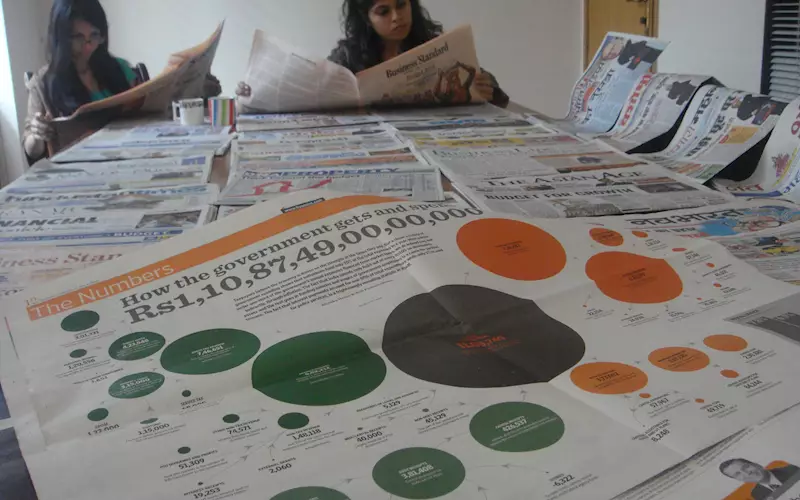IRS 2013: newspapers see a dip
The Indian Readership Survey's July-December 2013 report, which was released on 28 January, showed a decline in readership for majority of the top 10 publications.
30 Jan 2014 | By PrintWeek India
Although a note from Paritosh Joshi, chairman of IRS technical committee appealed that the new results should not be compared with the older ones, as this release is the first since the new vendor, Nielsen, was appointed in early 2013, and the new IRS has several features that distinguish it from the previous edition, the results managed to create quite a stir.
The survey was jointly conducted by the Media Research Users Council (MRUC) and the Research Studies Council of India (RSCI), and covered a sample size of more than 2,35,000 households.
The survey revealed the following results for the top ten competitors:
| Publication | Oct-Dec 2012 | Jul- Dec 2013 | Rank | |
| 2013 | 2012 | |||
| Dainik Jagran | 1,63,70,000 | 1,55,30,000 | 1 | 1 |
| Hindustan | 1,22,50,000 | 1,42,50,000 | 2 | 3 |
| Dainik Bhaskar | 1.44.20.000 | 1,28,60,000 | 3 | 2 |
| Malayala Manorma | 97,70,000 | 85,70,000 | 4 | 4 |
| Daily Thanthi | 73,30,000 | 81,60,000 | 5 | 8 |
| Rajasthan Patrika | 68,40,000 | 76,70,000 | 6 | 9 |
| The Times of India | 76,20,000 | 72,40,000 | 7 | 7 |
| Amar Ujala | 84,30,000 | 71,00,000 | 8 | 5 |
| Mathrubhumi | 63,30,000 | 61,40,000 | 9 | 10 |
| Lokmat | 73,10,000 | 56,00,000 | 10 | 6 |
According to the survey, Dainik Jagran retained the top stop in spite of its significant decrease in readership which was as 1,55,30,000 as compared to 1,63,70,000 last year.
Hindi daily Hindustan which is published by Hindustan Media Ventures, a subsidiary of HT Media, gained a position to be the new number two with an increased readership of 1,42,50,000.
While Malayala Manorma, the Malayalam daily retained its position at number 4, the Tamil daily, Daily Thanthi gained positions to stand out at number 5.
Among the English dailies, The Times of India saw a decline in readership from 76,20,000 readers to 72,40,000.
In terms of the distinguishing features, the improved survey carried out by Nielsen was done using DS-CAPI (Dual Screen- Computer Aided Personal Interview) devices for administering and recording all interviews. In the past, the majority of interviews were conducted in the traditional PAPI (Paper And Pen Interview) method.
The average interview duration was also reduced from over an hour to 30 minutes making it compact, which meant that both interviewer and respondent did not suffer from administration fatigue.











 See All
See All